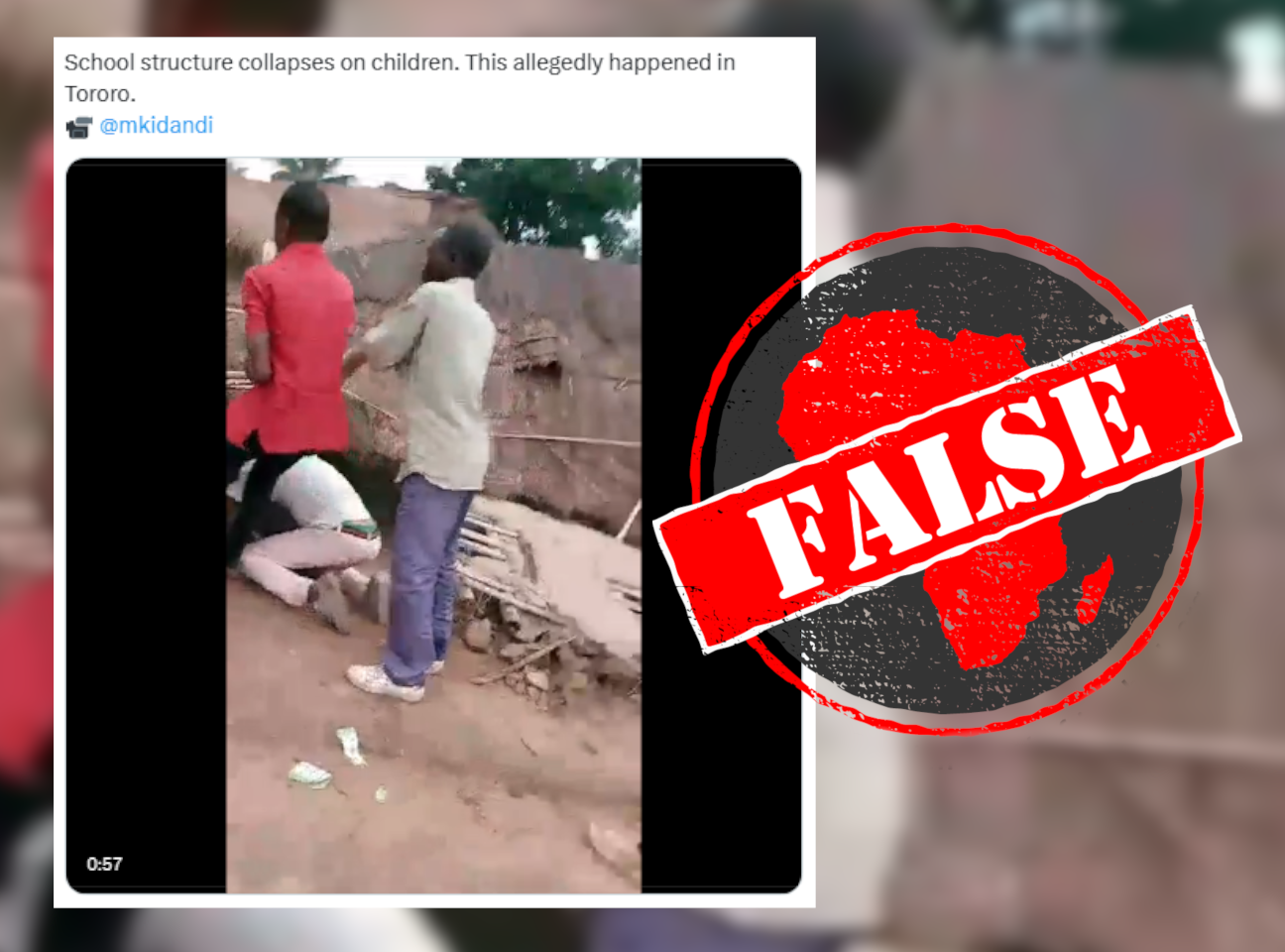IN SHORT: A video circulating widely on social media showing a school structure collapse is wrongly claimed to have occurred in Uganda. But it actually happened in DR Congo.
A distressing video circulating social media shows a group of people lifting a collapsed structure and rescuing young children in school uniforms who are trapped underneath.
The structure is made out of mud with wooden poles. The video is posted with claims that the incident took place in Tororo in eastern Uganda.
These claims can be found in several posts, including here, here, here, here, here, here, here, here, here and here. The posts have received a lot of views and engagement.
Several commenters on the video doubt that the incident took place in Uganda, mainly because of the language spoken in the video. Africa Check could not confirm what language was heard.
Africa Check has in the past debunked various claims about schools in poor condition. Examples are the fact checks here, here, here and here.
These allegations are often used to provoke public anger against politicians in a particular region. But did this school collapse really happen in Tororo? We checked.

Congolese posts about the video
A reverse image search of the keyframes in the video shows that the video has been posted several times. The earliest upload we found of the video was 14 January 2024.
It was shared by several Congolese social media accounts, including here, here, and here. The accounts said the incident took place in Tshumbe in Sankuru province, which is in the Democratic Republic of the Congo (DRC).
Other posts of the video around the same time, such as here, here, and here, also confirm this.
Congolese news article
As most news websites out of the DRC are in French, we did a Google search using the French keywords “Tshumbe école l’écroulement” which roughly translates to “Tshumbe school collapse”.
This led us to a DRC news website which reported on the incident. According to this report, the incident took place on 13 January 2024 at a school called Mutshilua Primary School in Tshumbe. The article reported that the incident caused injuries but no deaths.
The claims that the video shows an incident that took place in Uganda started circulating at least a month later, in February. These claims are untrue.
Republish our content for free
For publishers: what to do if your post is rated false
A fact-checker has rated your Facebook or Instagram post as “false”, “altered”, “partly false” or “missing context”. This could have serious consequences. What do you do?
Click on our guide for the steps you should follow.
Publishers guideAfrica Check teams up with Facebook
Africa Check is a partner in Meta's third-party fact-checking programme to help stop the spread of false information on social media.
The content we rate as “false” will be downgraded on Facebook and Instagram. This means fewer people will see it.
You can also help identify false information on Facebook. This guide explains how.


Add new comment